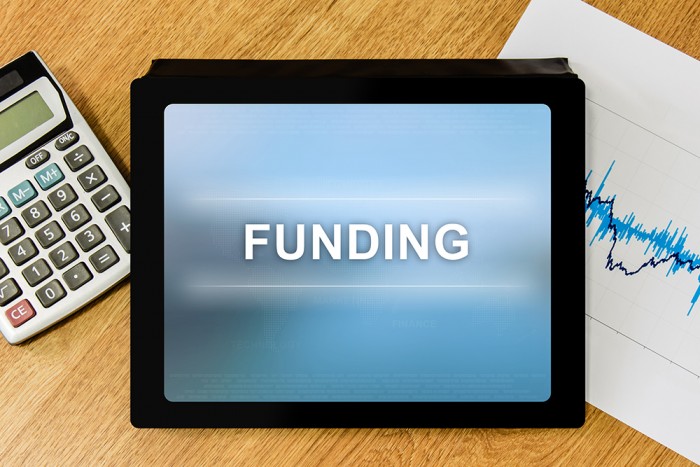Telehealth
Mainstay’s Telemedicine Partnership With StationMD Prevents ER Visits, Saving $100K: RCPA Member Mainstay Life Services Featured

CMS Releases Proposed 2024 Physician Fee Schedule
On July 13, 2023, the Centers for Medicare & Medicaid Services (CMS) issued a proposed rule that announces and solicits public comments on proposed policy changes for Medicare payments under the Calendar Year (CY) 2024 Physician Fee Schedule (PFS) and other Medicare Part B issues, effective on or after January 1, 2024.
The calendar year (CY) 2024 PFS proposed rule is one of several proposed rules that reflect a broader Administration-wide strategy to create a more equitable health care system that results in better access to care, quality, affordability, and innovation.
The proposed modifications include several pertaining to telehealth policy in the Medicare program for 2024. One of the major takeaways from the proposed 2024 PFS is the clarification that certain telehealth flexibilities that were previously extended until 151 days after the end of the public health emergency (PHE) have now been extended until December 31, 2024, in accordance with amendments made by the Consolidated Appropriations Act, 2023. These extensions have been known since the CAA’s passage in December last year and has also been addressed in a series of fact sheets and FAQ documents.
However, there were also some new changes addressed in the 2024 PFS. For example, every year CMS will consider adding new services to their list of codes that are reimbursable via telehealth. While they did not decide to add any new codes on a permanent basis to the list (though many remain on the list temporarily through the end of 2024), they did propose to add a number of codes to Category 3 (CMS’ current temporary list), including certain codes for health and well-being coaching services. Additionally, CMS announced a proposed revision to their telehealth code classification process, moving from a Category 1, 2 and 3 classification system to a binary ‘permanent’ or ‘provisional’ classification in an attempt to simplify the process beginning in CY 2025. In order to make the steps for getting a code accepted for inclusion in either the permanent or provisional telehealth lists transparent, CMS proposes a five-step process that is detailed in the proposed 2024 PFS, which includes consideration of the evidence of clinical benefits.
A few additional changes proposed in the document are listed below:
- The list of telehealth practitioners is amended to recognize marriage and family therapists and mental health counselors as telehealth practitioners, effective Jan. 1, 2024.
- CMS will pay for place of service (POS) 10 at the non-facility PFS rate, while 02 will be paid at the facility rate beginning Jan. 1, 2024.
- Frequency limitation would be removed for subsequent inpatient visits through the duration of CY 2024.
- Multiple clarifications are provided for billing both remote physiologic monitoring (RPM) and remote therapy monitoring (RTM) codes.
- Direct supervision is allowed to include real-time audio video interactive telecommunication through Dec. 31, 2024 (including for FQHCs and RHCs). Direct supervision requirements are also addressed for occupational therapists in private practice (OTPP) and physical therapists in private practice (PTPP) for unenrolled physical and occupational therapists when providing remote RTM.
CMS will be accepting comments on their proposals until 5:00 pm EST on September 11, 2023, and RCPA will review the document and work with the National Council for Mental Wellbeing in drafting recommendations. We welcome provider feedback and comments to be included and ask that you contact and share these with your RCPA Policy Director.
CMS Releases Revised Telehealth Services Publication
The Centers for Medicare and Medicaid Services (CMS) released a revised Medicare Learning Network (MLN) fact sheet on telehealth services. A number of changes have been made due to the end of the public health emergency (PHE), including the following items:
- Information on the end of the COVID-19 public health emergency as well as CY 2023 and telehealth policies.
- Status of Ongoing Flexibilities:
- Through December 31, 2024, all patients can get telehealth wherever they are located. They do not need to be at an originating site, and there are no geographic restrictions.
- Through December 31, 2024, all providers who are eligible to bill Medicare for professional services can provide distant site telehealth.
- For behavioral or mental health telehealth, you may use 2-way, interactive, audio-only technology. This is also part of the PA Telehealth Statute under Act 98.
- Additional Resources Provided:
- Chapter 12, Section 190 of the Medicare Claims Processing Manual
- Telehealth Policy Changes After the COVID-19 PHE
- Tips for Telehealth Success
- Added information on:
- New G-codes. Starting January 1, 2023, you may voluntarily report the use of telehealth technology in providing home health (HH) services on HH payment claims. See MLN Matters Article MM12805 for more information.
- Consent for care management and virtual communication services.
Providers are encouraged to review this document closely and bookmark it for future reference.
As RCPA continues its efforts to expand access via telehealth in Pennsylvania, we will be submitting comments on the new Calendar Year (CY) 2024 Physician Fee Schedule (PFS). RCPA will be sending out a communication on this in the coming days.
Federal HIPAA Telehealth Flexibilities to End August 9

Updated FAQ on Modifications to Medication Administration Course Requirements Now Available
The Office of Developmental Programs (ODP) is distributing a reissue of the COVID-19 FAQ About Modifications to MedAdmin Requirements. The purpose of this communication is to provide updated information. It states, “Training for non-oral routes of medication administration that is permitted to be provided by a certified trainer can be conducted remotely using video telecommunication technology until November 11, 2023, but must be live, not recorded.”
Read the full FAQ here.
DEA, SAMHSA Extend Flexibilities of Ryan Haight Act
ODP’s Technology Task Force Seeking Input From Providers
The Office of Developmental Programs (ODP) Technology Task Force is seeking input from providers about the use of Remote Supports, Assistive Technology, Teleservices, and Video Monitoring. The information collected will develop baseline data and inform future decisions related to supportive technology. We would like to thank all providers that have participated in the survey so far. We have extended the deadline so that all providers may have a chance to participate.
This brief survey should take approximately 5–10 minutes to complete. Please include information for all individuals served and for all service locations throughout your organization. Once collected, ODP plans to publish the results for all stakeholders.
The survey will close on Friday, May 5, 2023, at 4:00 pm.
Thank you for your participation.
To complete the survey, please use this link.
PA Health, Human Services Providers Jeopardized by Funding Needs, Workforce Shortages
OCR Provides 90-Day Transition Period for HIPAA Telehealth Compliance














